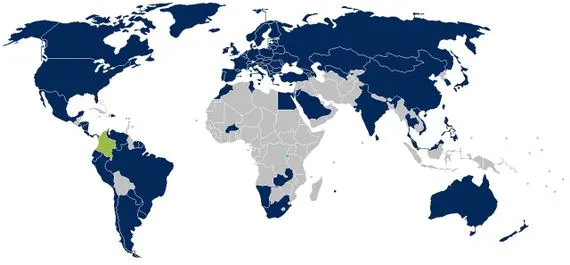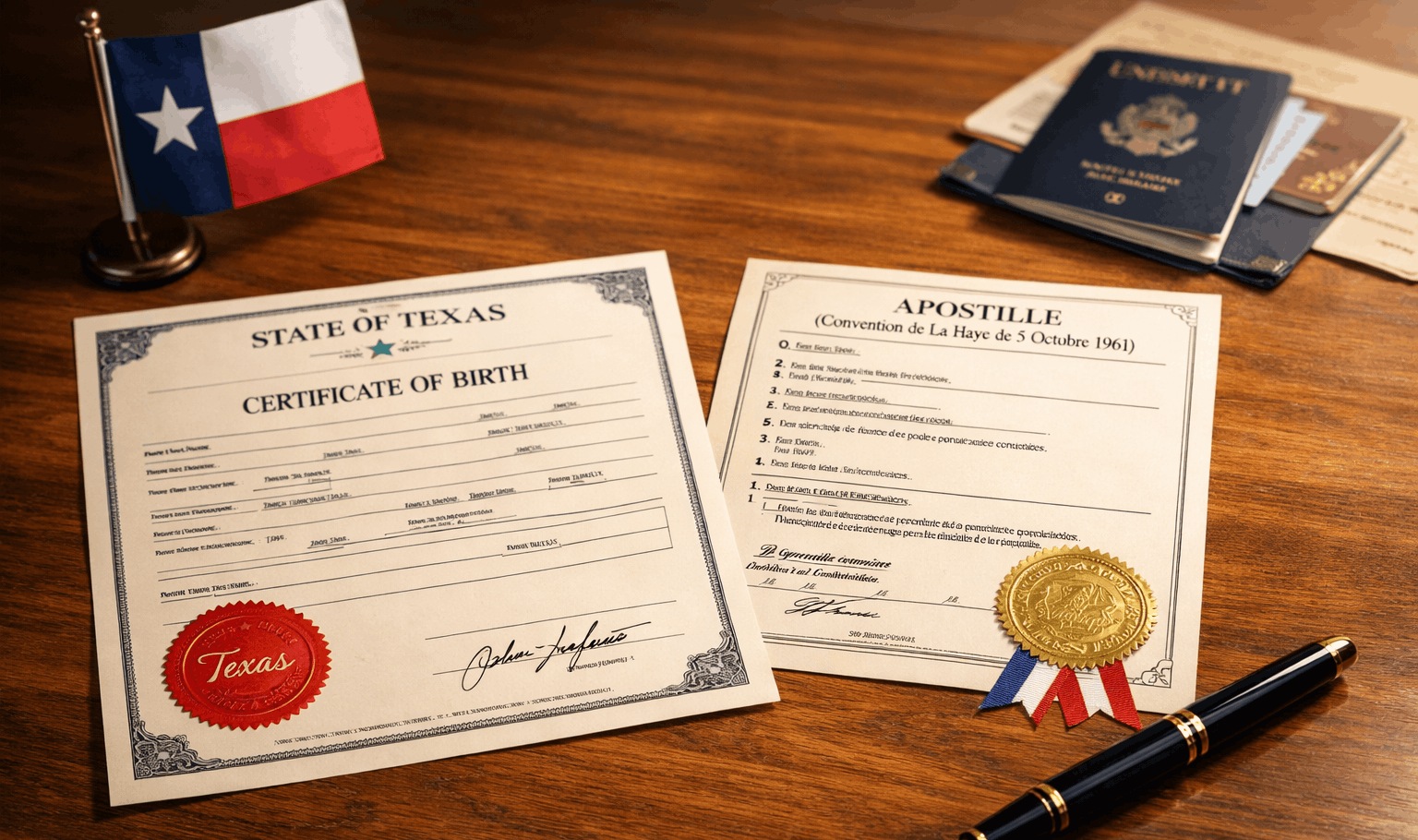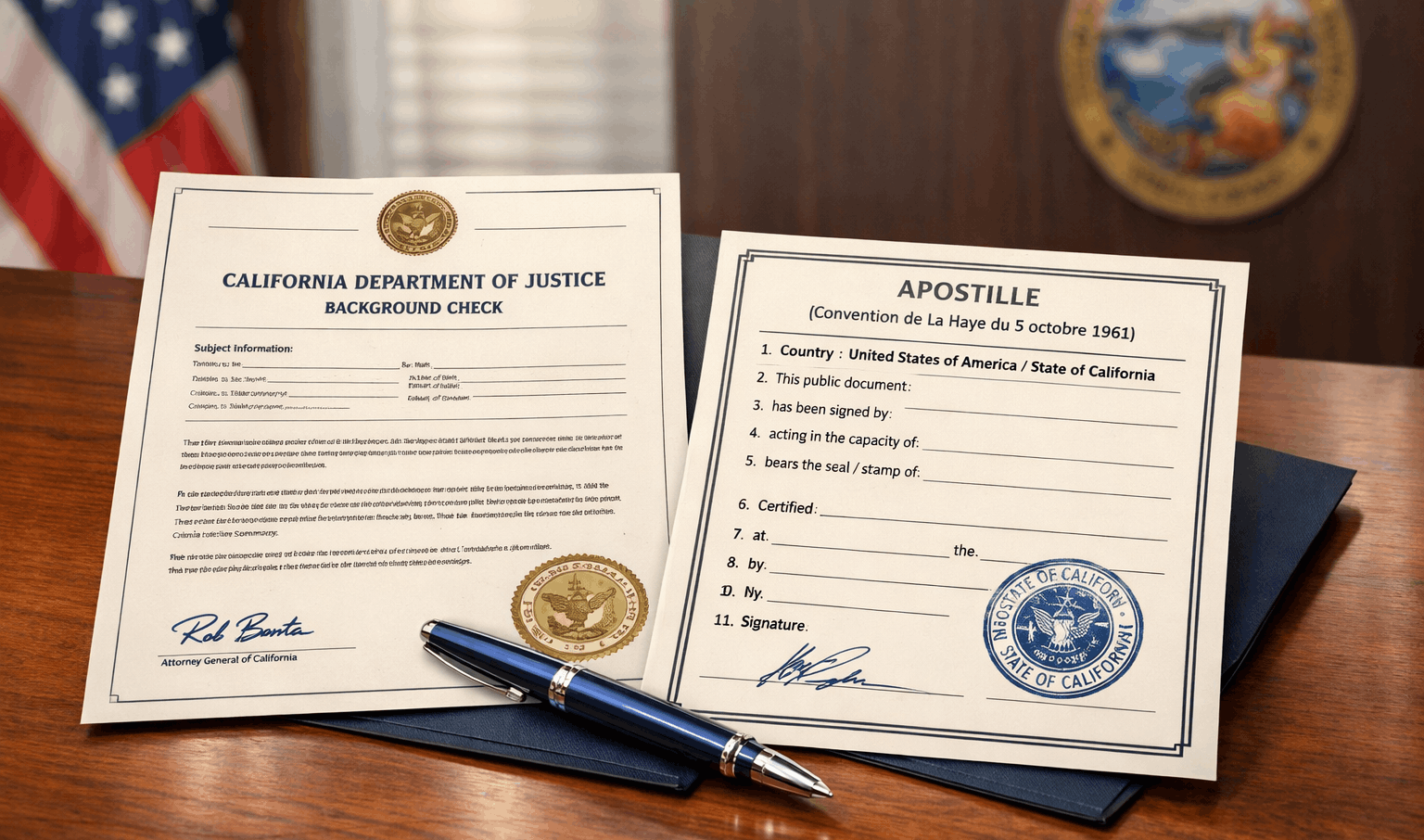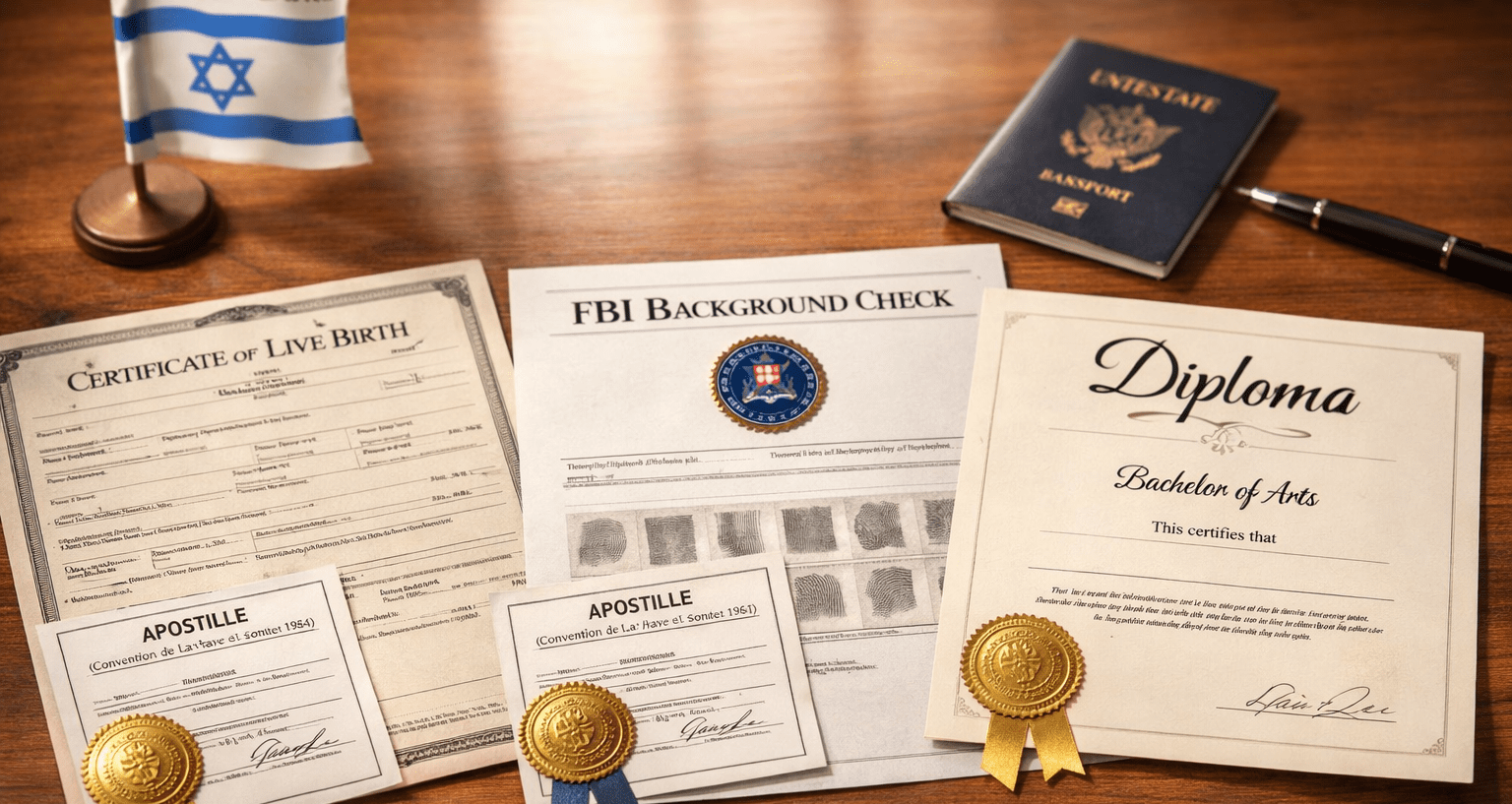
Member Countries of the Hague Apostille Convention
When handling international paperwork, especially for immigration, study, or cross-border business, one critical step often stands between you and approval: document legalization. Thankfully, the Hague Apostille Convention simplifies this process for participating nations. If you’re preparing to use personal, academic, or business documents abroad, understanding which apostille member countries accept this streamlined certification method can save you time, money, and frustration.
This article explores what the Hague Apostille Convention is, how it works, and provides an updated list of apostille countries that have signed on as convention members. It’s your go-to reference for navigating international document authentication smoothly.
What is the Hague Apostille Convention?
To fully understand the apostille system, it is helpful to first examine the origins of the Hague Apostille Convention and the reasons it was established. The following sections outline the treaty’s development and its current role in global affairs.
Background of the Apostille Convention
The Hague Apostille Convention, established in 1961 at the Hague Conference on Private International Law (HCCH), was designed to simplify and standardize the process of legalizing documents for international use. Its goal was to eliminate the often redundant and bureaucratic process of legalizing public documents for international use. Before the convention, legal documents like birth certificates, court rulings, academic transcripts, or powers of attorney had to be authenticated by multiple authorities, including consulates or embassies in the receiving country. This method was both slow and inconsistent, with significant variation between countries.
To address this, the HCCH established a uniform certificate called the apostille that could be attached to a document by a designated authority in the issuing country. Once this certificate is in place, countries in the Hague Convention agree to recognize the document’s authenticity without requiring further legalization. As a result, the apostille mechanism significantly reduced diplomatic bottlenecks and made global administrative processes faster and more transparent.
Why the Apostille Convention Matters for Legalization
For anyone working, studying, or relocating abroad, document authentication is a crucial step. Without proper authentication, foreign authorities may reject your documents, which can result in delays in visa processing, business registration, or school admissions. This is where the Hague Apostille Convention provides a critical advantage.
By signing the Apostille Convention, member countries agree to a simplified validation process that makes international document exchange more efficient. Instead of requiring documents to be authenticated by embassies or consulates, these nations accept a single apostille certificate issued by an authorized body in the originating country. This speeds up processing, simplifies the bureaucracy, and reduces costs.
The convention ultimately promotes trust and cooperation among nations by standardizing the way documents are legalized. Whether you’re submitting a diploma in France or a power of attorney in Japan, the apostille ensures that your paperwork is treated with the same legitimacy it has in your home country, provided that both nations are signatories to the Apostille Convention.
How Does the Apostille Convention Work?
Once you are aware that a document necessitates an apostille, it is useful to grasp the wider situation: how this procedure compares to conventional embassy legalisation, which documents meet the requirements, and who is empowered to issue the certificate. We will break this down in the sections below.
Apostille vs. Embassy Legalization
In a Hague apostille country, a single apostille certificate is all that’s needed to authenticate documents for use in other member countries. This method simplifies the process by bypassing the need for embassy involvement. Apostilles are generally quicker, more cost-effective, and involve fewer administrative steps compared to embassy legalization. The apostille certificate itself serves as proof of authenticity, recognized universally within the participating countries.
For countries not part of the Hague Apostille Convention, the process becomes more complicated and time-consuming. Documents must undergo embassy or consular legalization, which typically includes notarization, state or federal authentication, and final validation by the foreign embassy or consulate. Due to the multiple steps involved, the process often spans several weeks, adding extra time and expense. Embassy legalization may still be necessary for certain specialized documents, such as legal judgments or specific official records.
Types of Documents Covered by Apostille
Apostilles apply exclusively to public documents issued by government authorities in apostille convention members. These include a wide variety of official papers that may be required for legal, academic, personal, or corporate use abroad. Typical documents eligible for apostille certification include:
- Birth, death, and marriage certificates
- Educational diplomas, transcripts, and degrees
- Court orders, affidavits, and other legal records
- Criminal background checks (e.g., FBI reports)
- Notarized documents, such as powers of attorney
- Business documents like articles of incorporation and company bylaws
Who Can Issue an Apostille Certificate?
Every country participating in the Hague Apostille Convention assigns an official body to handle the issuance of apostille certificates. These are often government authorities, such as a foreign affairs department or a state-level secretary’s office. The appointed entity reviews the document to ensure its authenticity by specifically verifying the signature, seal, or stamp, and then attaches the apostille certificate, usually in the form of a printed sheet or digital file.
For example, in the United States, local documents are generally apostilled by the Secretary of State in each state, while federal documents fall under the responsibility of the U.S. Department of State. In Canada, Global Affairs Canada and select provincial authorities share this responsibility. Similarly, in Australia, it’s the Department of Foreign Affairs and Trade (DFAT) that issues apostilles.
Each country maintains a list of its competent authorities through the official Hague Conference (HCCH) directory, ensuring transparency and standardization among apostille member countries. It’s essential to apply through the correct authority based on the document’s origin to avoid delays or rejections in international use.
List of Hague Apostille Convention Countries
Below is an updated list of apostille countries, including the year each country officially joined the Hague Apostille Convention. This list is essential for verifying whether the destination country of your documents accepts apostille certification or if embassy legalization is still required.
| Country | Year Joined |
| Albania | 2004 |
| Andorra | 1996 |
| Antigua and Barbuda | 1981 |
| Argentina | 1988 |
| Armenia | 1994 |
| Australia | 1995 |
| Austria | 1968 |
| Azerbaijan | 2005 |
| Bahamas | 1973 |
| Bahrain | 2013 |
| Bangladesh | 2023 |
| Barbados | 1996 |
| Belarus | 1992 |
| Belgium | 1976 |
| Belize | 1993 |
| Bolivia | 2018 |
| Bosnia and Herzegovina | 1992 |
| Botswana | 1966 |
| Brazil | 2016 |
| Brunei Darussalam | 1987 |
| Bulgaria | 2001 |
| Burundi | 2015 |
| Cabo Verde | 2010 |
| Canada | 2024 |
| Chile | 2016 |
| China (incl. Hong Kong, Macao) | 2023 |
| Colombia | 2001 |
| Cook Islands | 2005 |
| Costa Rica | 2011 |
| Croatia | 1991 |
| Cyprus | 1973 |
| Czech Republic | 1999 |
| Denmark | 2006 |
| Dominica | 1978 |
| Dominican Republic | 2009 |
| Ecuador | 2005 |
| El Salvador | 1996 |
| Estonia | 2001 |
| Eswatini | 1968 |
| Fiji | 1970 |
| Finland | 1985 |
| France | 1965 |
| Georgia | 2007 |
| Germany | 1966 |
| Greece | 1985 |
| Grenada | 2002 |
| Guatemala | 2017 |
| Guyana | 2019 |
| Honduras | 2004 |
| Hungary | 1973 |
| Iceland | 2004 |
| India | 2005 |
| Indonesia | 2022 |
| Ireland | 1999 |
| Israel | 1978 |
| Italy | 1978 |
| Jamaica | 2021 |
| Japan | 1970 |
| Kazakhstan | 2001 |
| Kosovo | 2016 |
| Kyrgyzstan | 2011 |
| Latvia | 1996 |
| Lesotho | 1966 |
| Liberia | 1996 |
| Liechtenstein | 1972 |
| Lithuania | 1997 |
| Luxembourg | 1979 |
| Malawi | 1967 |
| Malta | 1968 |
| Marshall Islands | 1992 |
| Mauritius | 1968 |
| Mexico | 1995 |
| Monaco | 2002 |
| Mongolia | 2009 |
| Montenegro | 2006 |
| Morocco | 2016 |
| Namibia | 2001 |
| Netherlands | 1965 |
| New Zealand | 2001 |
| Nicaragua | 2013 |
| Niue | 1999 |
| North Macedonia | 1991 |
| Norway | 1983 |
| Oman | 2012 |
| Pakistan | 2023 |
| Palau | 2020 |
| Panama | 1991 |
| Paraguay | 2014 |
| Peru | 2010 |
| Philippines | 2019 |
| Poland | 2005 |
| Portugal | 1969 |
| Republic of Korea (South Korea) | 2007 |
| Republic of Moldova | 2007 |
| Romania | 2001 |
| Russia | 1992 |
| Rwanda | 2024 |
| Saint Kitts and Nevis | 1994 |
| Saint Lucia | 2002 |
| Saint Vincent and the Grenadines | 1979 |
| Samoa | 1999 |
| San Marino | 1995 |
| São Tomé and Príncipe | 2008 |
| Saudi Arabia | 2022 |
| Senegal | 2023 |
| Serbia | 1992 |
| Seychelles | 1979 |
| Singapore | 2021 |
| Slovakia | 2002 |
| Slovenia | 1991 |
| South Africa | 1995 |
| Spain | 1978 |
| Suriname | 1975 |
| Sweden | 1999 |
| Switzerland | 1973 |
| Tajikistan | 2015 |
| Tonga | 1970 |
| Trinidad and Tobago | 2000 |
| Tunisia | 2018 |
| Turkey | 1985 |
| Ukraine | 2003 |
| United Kingdom | 1965 |
| United States of America | 1981 |
| Uruguay | 2012 |
| Uzbekistan | 2012 |
| Vanuatu | 1980 |
| Venezuela | 1999 |
What to Do If a Country is NOT a Convention Member?
If the country where your documents will be used hasn’t joined the Hague Apostille Convention, an apostille by itself won’t be enough. In this case, you’ll need to complete a traditional legalization process to ensure your paperwork is legally accepted abroad. The sections below outline the available options and explain each step in detail.
Alternatives to Apostille
When apostille certification isn’t accepted, the alternative is consular or embassy legalization. This process usually starts with a certified or notarized document, followed by authentication by a domestic authority such as a foreign affairs department. Finally, the embassy or consulate of your destination country reviews and legalizes the document to confirm its validity abroad.
This route is required for countries such as Egypt, Thailand, Vietnam, Malaysia, and Jordan — nations that are not part of the Hague Apostille Convention countries. Although these steps are more extensive, working with a professional legalization provider can help streamline the process, ensure compliance, and minimize errors.
Embassy or Consular Legalization Process
Embassy legalization typically involves a three-step process:
- Notarization (if applicable). Many documents, especially business or legal papers, must first be notarized.
- Authentication by the appropriate government body. In the U.S., this may involve the Secretary of State or the Department of State. In other countries, this could be a Foreign Affairs department.
- Legalization by the foreign embassy or consulate. The authenticated document is submitted to the consulate of the destination country, which provides the final stamp or certificate of legalization.
Since each country has its own criteria for accepting documents, it’s crucial to understand the specific requirements for non-member countries to prevent delays or rejections.
Your Partner in the Process
Behind every notarization and stamp is something bigger: new opportunities, important milestones, and global connections. No matter which authentication process your situation requires, we’re here to make sure your documents are prepared, certified, and ready for wherever life takes you.
FAQs about Hague Apostille Convention
What documents can be apostilled?
Only public documents are eligible for an apostille under the Hague Convention. These include vital records (birth, death, marriage certificates), educational documents (transcripts, diplomas), notarized affidavits, court rulings, powers of attorney, criminal background checks, and corporate papers such as articles of incorporation. If the document is private, it typically requires notarization before being apostilled.
Is an apostille valid forever?
Yes, an apostille certificate does not expire. However, the document to which it is attached may have an expiration date depending on the institution or authority reviewing it. For instance, some foreign immigration offices or universities may request documents issued within the last six months, even if the apostille remains legally valid. It’s always best to verify the age limit requirements with the receiving party in the relevant apostille convention member’s country.
How long does it take to get one?
Processing time may differ depending on the issuing country and document type. In many cases, apostilles are issued within 1 to 5 business days if submitted through a government office or authorized service provider. Some jurisdictions offer expedited services, while others, especially when mailing is involved, may take up to two weeks. It’s important to plan ahead, particularly when your documents are required for time-sensitive matters abroad.
Is notarization required before an apostille?
It depends on the type of document. Many official records, such as birth or marriage certificates, do not require notarization before an apostille. However, documents such as personal declarations, powers of attorney, or corporate records that are not issued by a government agency typically need to be notarized before they can be apostilled.
Can I apostille a document issued in another country?
It is not possible to apostille a document in any other location than the country in which it was originally issued. For instance, a U.S. birth certificate must be apostilled by the relevant authority in the United States. If your document was issued in France, it must be apostilled by the French competent authority. Apostilles cannot be transferred across borders or reissued by a different country, even if both are Hague apostille countries.





